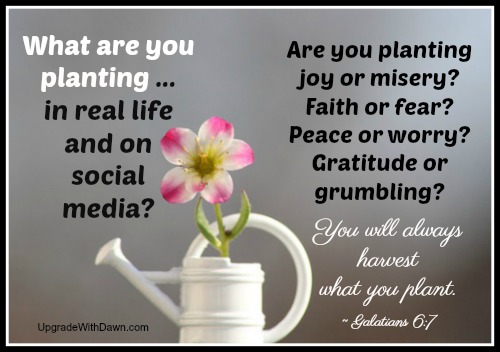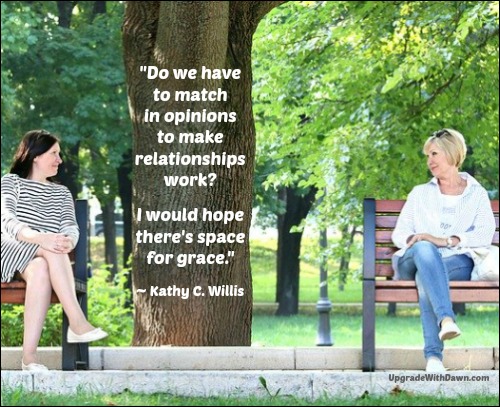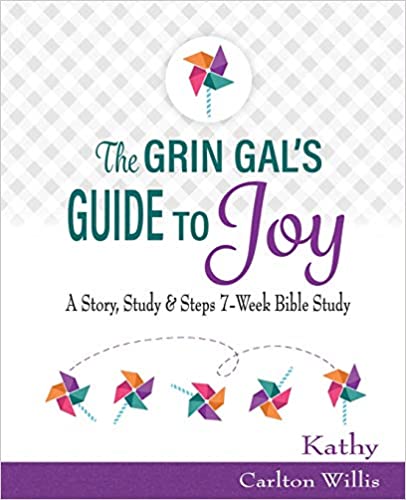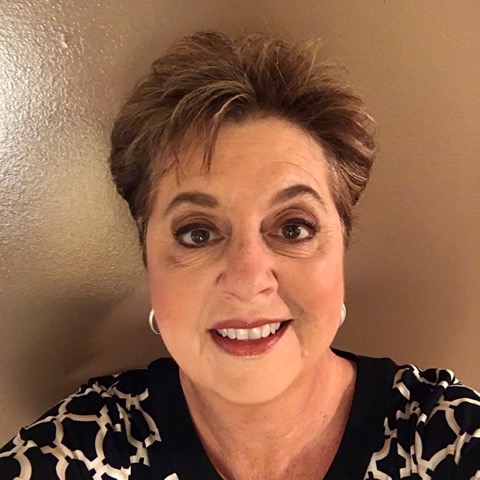Know the Marriage Code?
Pam Farrel knows how to encourage women (and her husband likewise encourages men). In this Marriage UPGRADE, Pam explains the "marriage code," and how understanding and applying it can transform marriage relationships.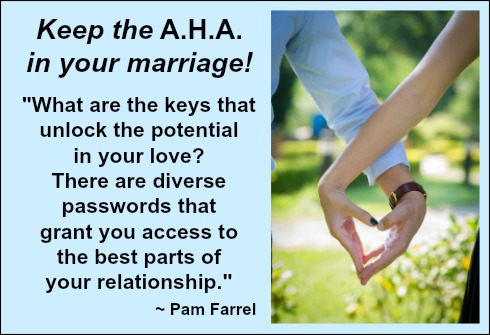
"Codes are all around us and you need one to access just about everything that is important or sensitive," Pam says. "So, what is 'the marriage code'?"
I (Dawn) learned about this code—though I didn't call it that—at the beginning of my marriage. I can testify that the code God designed is a blessing, because it provides a healthy framework and perspective on this vital relationship.
Pam continues . . .
What are the keys that unlock the potential in your love? They are found in Ephesians 5:33:
… each one of you also must love his wife as he loves himself, and the wife must respect her husband.
Did you notice different commands are given to the husband and the wife?
The obvious question is, “Why?”
Why not just give general instructions that apply to both husbands and wives?
In our book, The Marriage Code, we point out there are diverse passwords that grant you access to the best parts of your relationship.
When this code is in place, your relationship appears to be relatively easy. The way you interact, love, argue, and make decisions is satisfying for you as a couple.
When the code is missing, all the systems of your relationship are awkward, your love for each other is elusive, and you seem to disagree on just about everything.
The marriage code is based on the most common needs that men and women have.
When you meet the key need in your mate’s heart, you move above the “line of trust” in your marriage, where life and love is sweet and satisfying.
However, you are very different from one another, and you have different needs at the core of who you are.
HER Code
The password that will give a man access to his wife’s heart is: Security.
Security is the priority core need in a woman’s life. Because of hormones, a woman’s life is always changing. A husband wins at love when he makes it his ambition to meet his wife’s security need first in all things.
Any time she gets the message from him, “You are safe with me, and it is alright to be who you are right now,” her heart is drawn toward him and she relaxes in the relationship.
HIS Code
The password that will give a woman access to her husband’s heart is: Success.
She does this when she makes it her ambition to create an environment where her husband can succeed at work, with the kids, at church, in the community—and especially with her!
Any time he gets the message from her, “I love the way you live, and I love the way you love me,” his heart is drawn toward her and he gains confidence in the relationship.
Your Marriage MEET UP
For over 40 years, Bill and I have had a weekly Marriage Meet Up.
- This regular meeting keeps us
 pulling in the same direction together.
pulling in the same direction together. - It also helps us stay connected emotionally and spiritually.
The Meet Ups keep the A.H.A. in our relationship.
1. A - Attitudes
We begin and end with prayer and scripture, so the Holy Spirit has room to work on us on as individuals and as a couple.
2. H - Habits
The weekly Marriage Meet Ups include practical routines of matching calendars, talking through financials, tasks, To Do lists, and dividing up responsibilities.
3. A - Affection
We bookend the marriage meet ups with compliments and affirmations.
We thank each other for something we are grateful for in the past week, and at the end we affirm one another and speak life-giving affirmations on a trait or action we saw expressed in the meeting.
When you apply the Marriage Code, your weekly Marriage Meet Ups will go smoother if he enters feeling successful and she enters feeling secure.
Cozy up and make a date where you each finish these sentences:
Husband to the wife:
Honey, the things you say and do that help me feel most successful are . . .
Wife to the husband:
Honey, the things you say and do that make me feel most secure are . . .
Keep the A.H.A. in YOUR marriage!
What day and time can you and your mate meet up each week?
Pam Farrel is an international speaker, relationship expert, and the author of more than 50 books 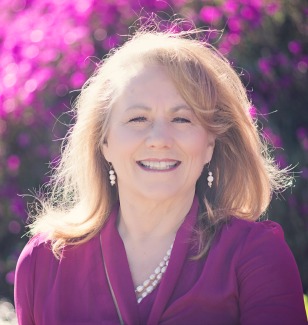 including their newest, Marriage Meet Ups: A His and Her set, 52 week
including their newest, Marriage Meet Ups: A His and Her set, 52 week  devotional planner for couples that want purpose, passion and productivity. To go into the meet up happier, download your free copy of Infectious Joy! Pam and her husband, Bill, Co-Direct Love-Wise Ministries. They invite you to become a member of the Living Love-Wise Community.
devotional planner for couples that want purpose, passion and productivity. To go into the meet up happier, download your free copy of Infectious Joy! Pam and her husband, Bill, Co-Direct Love-Wise Ministries. They invite you to become a member of the Living Love-Wise Community.
Graphic adapted, courtesy of Maura Barbulescu at Pixabay.
Photo of Bill and Pam by Rebecca Friedlander.
 Post a Comment → Posted on
Post a Comment → Posted on  Thursday, September 10, 2020 at 10:14AM
Thursday, September 10, 2020 at 10:14AM  Ephesians 5:33,
Ephesians 5:33,  Love and Respect,
Love and Respect,  Man's success,
Man's success,  Marriage,
Marriage,  Marriage Code,
Marriage Code,  Marriage Meet Up,
Marriage Meet Up,  Marriage relationship,
Marriage relationship,  Pam Farrel,
Pam Farrel,  Upgrade with Dawn,
Upgrade with Dawn,  Woman's security Upgrade Your Life
Woman's security Upgrade Your Life  Marriage,
Marriage,  Relationships
Relationships 




